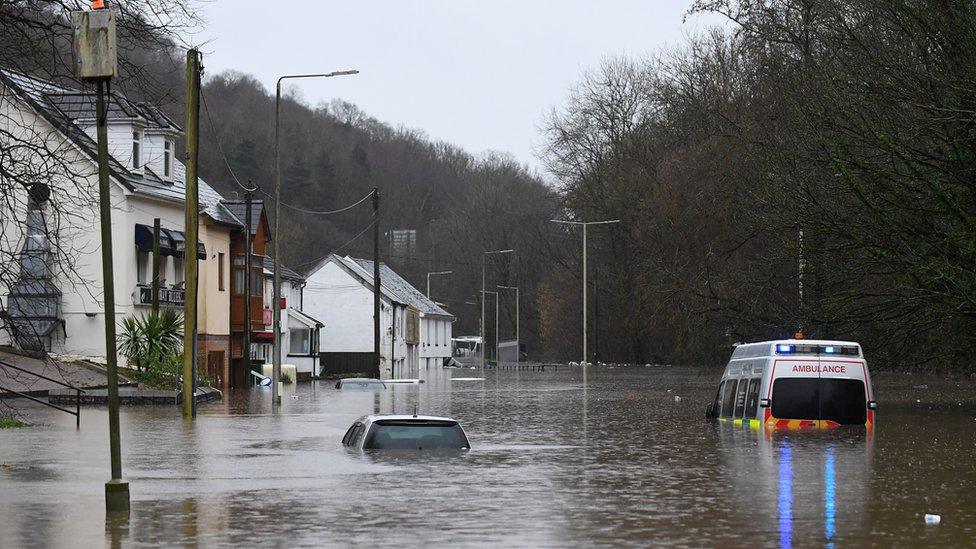Wales' climate change plans 'not sufficient', advisers say
- Published
Will Wales see more sun and less snow in future?
Lives and livelihoods are at risk if Wales does not do more to prepare for a hotter, wetter future, government advisers say.
The Climate Change Committee (CCC) said current plans to protect people, infrastructure and wildlife "will not be sufficient".
It comes despite warnings in a series of reports by the CCC since 2011.
The Welsh government said climate change was "at the heart" of its decision making.
Of the 61 risks identified by the CCC in its latest assessment of the impact of climate change in the UK, "more action" is needed in Wales to address 32 of them.
Twenty six of the risks have increased in urgency since the last report in 2016.
They include threats to the viability of coastal communities from sea level rise, flooding and erosion, people's health from overheating in their homes, roads and railways from extreme weather and lightning, and wildlife across land and sea.
How is the climate changing in Wales?
It is getting warmer and sunnier - but wetter and wilder too.
Since the mid 1970s Wales has seen an increase in average annual temperatures of 0.9C, with a 6.1% rise in average sunshine hours.
The report forecasts a rise of between 1.3 and 2.3C in annual temperatures here by the 2080s, depending on how successful the world is at cutting out the gases driving climate change.
It means hotter, drier summers with more extreme heatwaves - something we are already starting to experience.
Rainfall is expected to decrease in summer by approximately 15% by the 2050s and by up to 26% by the 2080s - leading to potential droughts.
By contrast, we are likely to have much wetter winters, exacerbating flooding issues.
Sea levels are also rising - with predictions in the report they could be between 22 (8.6in) and 28cm (11in) higher in Cardiff by the 2050s and between 43 (17in) and 76cm (30in) by the 2080s - once again depending on global efforts.
What are the risks of climate change?
Disruption to transport and IT infrastructure from fluctuating temperatures, wildfires and flooding could potentially impact "hundreds of thousands of people annually".
The report warns of "cascading risks" if power supplies are affected too, given Wales, like the rest of the UK, will be heavily reliant on electricity for everything from heating to transport.
Heat-related deaths in Wales could increase from 2.4 per 100,000 people a year in 2016 to 6.5 per 100,000 by the 2050s.
The report says measures to prevent overheating in people's homes is a "major policy gap" across all UK nations.
On sea level rise, there is "little evidence" Welsh government and local authorities are taking a strategic approach to identifying communities that may be at risk of losing homes and amenities and supporting them.
But the report does point to Fairbourne in Gwynedd as an example for the rest of the UK of where a plan is being put in place with the community.
Speaking in 2019, Fairbourne residents said they could become "climate change refugees"
Just over 10,000 properties are at risk from coastal flooding in Wales at present, this could increase "by 260%" by the 2080s - while 2,126 properties are likely to be at risk of coastal erosion where defences are not maintained.
And 148,000 people live in areas of significant flood risk from rivers, the sea and surface water.
While acknowledging "considerable advances" have been made on managing flood risk since 2016, the CCC concluded more action was needed given the scale of the threat - including tackling continued development on flood plains.
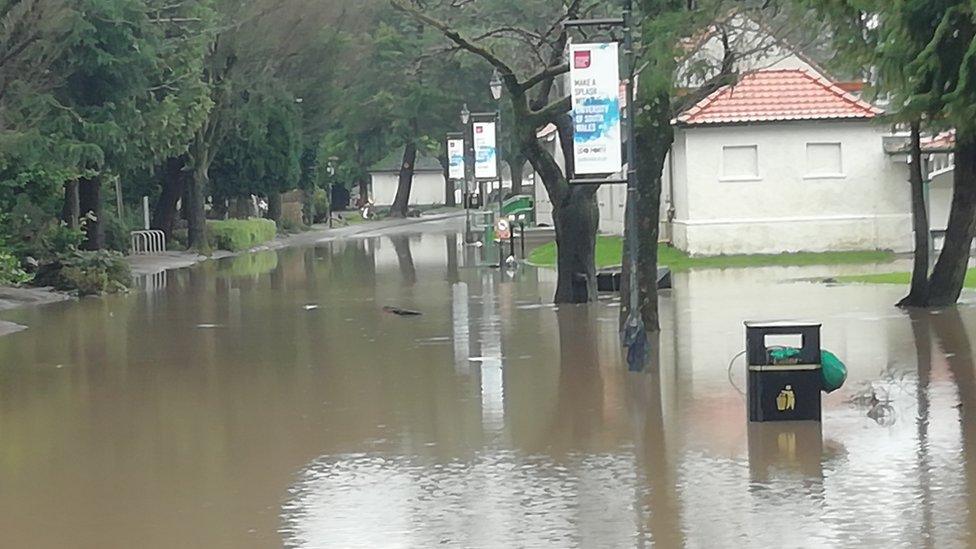
Pontypridd's popular lido at Ynysangharad Park was flooded during Storm Dennis
The problems that could be caused by landslides and subsidence in ex mining areas is a particular concern for Welsh communities, it said.
It said "urgent action" is needed to enhance surveillance of tree disease in Wales, with climate change thought to be contributing to a rise in the spread of pests and pathogens such as ash dieback.
We could face big problems if trees, peatlands and other natural habitats are allowed to suffer as they are a vital way of soaking up carbon dioxide and avoiding even worse effects from global warming.
'Scale of the challenge'
"We're seeing the climate change now, it's no longer a future issue," said Kathryn Brown, the CCC's head of adaptation.
"Welsh government will need to look at all of the risks and think carefully about how to enhance its policies but also take urgent action in the next two years in the priority areas."
Prof Andrew Flynn who specialises on climate adaptation at Cardiff University's school of geography and planning said it was an issue which "tends to get left behind".
"So much of the focus is on how can we reduce those carbon emissions - which is obviously hugely important," he said.
"But adapting to climate change is equally worthy of attention and matters a lot to people in the communities where they live."
Prof Flynn said the Welsh government had a tradition of being "innovative" on the environment and sustainability which meant it had a "good base to build on".
How communities are told about and consulted on the threats and opportunities climate change might pose in their areas should be one priority, he said.
"This is not simply a case of developing new policies - it's about recognising the scale of the challenge that we face."
What does the Welsh Government say?
Wales' climate change minister has welcomed the report from the CCC and said environment and climate change was "at the heart of our decision making".
"To help limit further climate change we need to do more to tackle emissions in the next 10 years than we have in the last 30," said Julie James MS.
The minister said its plan for climate change was already in the second year of being delivered, and the new advice "will enable us to review and update our actions in light of the latest science".
Welsh Conservative spokeswoman on climate change Janet Finch-Saunders called the report "alarming".
"Two years ago, in the wave of publicity driven by the antics of Extinction Rebellion, Labour declared a 'climate change emergency', but have done very little since to tackle the crisis," she said.
"Twenty-six of the risks have increased in urgency since the last report by the CCC, and if the current Welsh government fails to act to slow climate change, it is our children, grandchildren and future generations who will be forced to pay the price."
Related topics
- Published17 June 2021
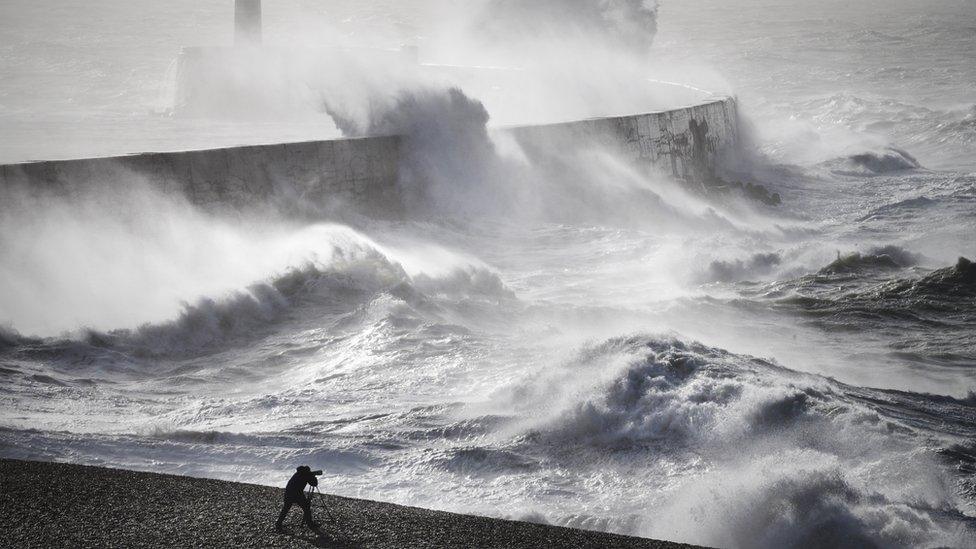
- Published10 October 2019
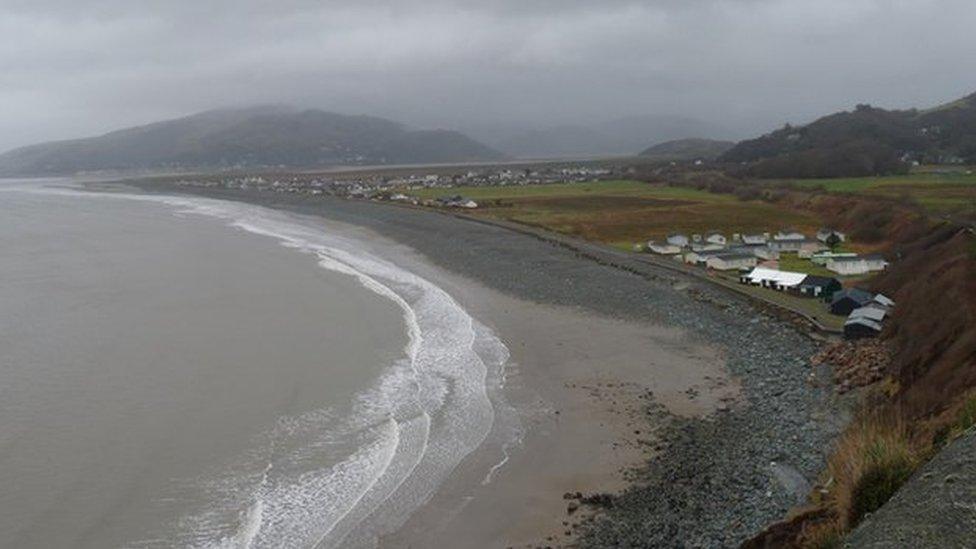
- Published12 July 2016
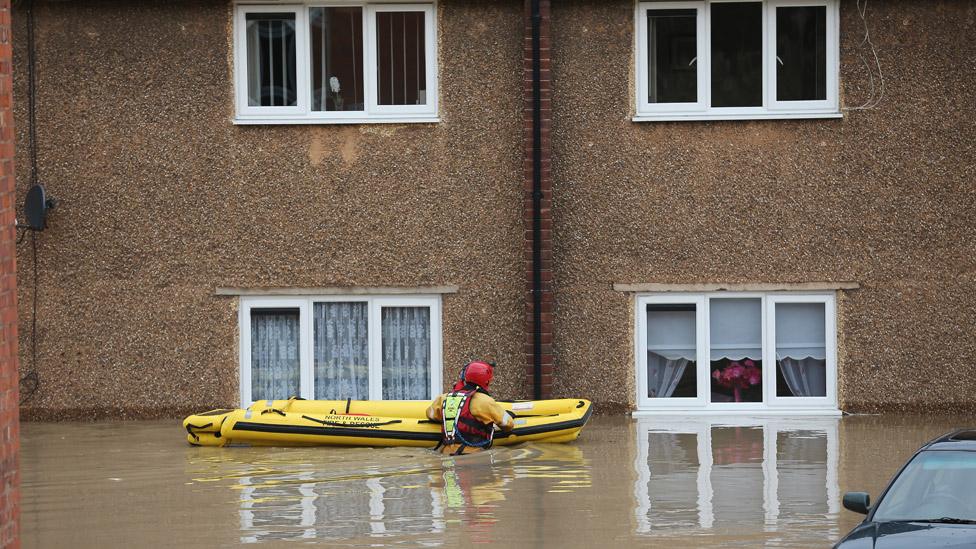
- Published23 February 2020
